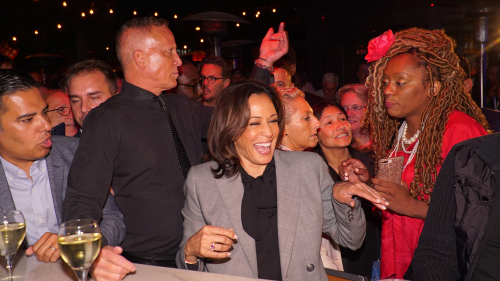
Vice President Kamala Harris has unveiled a significant economic proposal aimed at raising the U.S. corporate tax rate from its current 21% to 28%, a move that has ignited a heated debate across the political spectrum. This policy shift, announced on August 20, 2024, is a key component of Harris's presidential campaign platform and marks a substantial reversal from the corporate tax cuts implemented under the Trump administration in 2017, which saw the rate drop from 35% to 21%.
Harris's campaign argues that this tax increase is necessary to fund a series of ambitious economic initiatives designed to bolster the middle class. Among these initiatives are plans to construct 3 million new homes, introduce tax incentives for starter homes, and provide a $25,000 down payment grant for first-time homebuyers. The Vice President has positioned her plan as a "fiscally responsible" approach to ensuring that billionaires and large corporations contribute their "fair share" to the nation's economy.
Kamala Harris Backs Unrealized Gains Tax.
Listen to @VivekGRamaswamy explain it.
28% Corporate Tax
44.6% Capital Gains Tax
25% Tax on Unrealized Gains
Price Controls
No Tax on Tips
Up to $6k Child Tax Credit pic.twitter.com/d7m8iU02b2— Truth Patriot (@Truth2Everyone) August 21, 2024
However, the proposal has faced immediate backlash, particularly from the business community and Republican leaders. Critics argue that raising the corporate tax rate could stifle economic growth, reduce international competitiveness, and lead to job losses as companies may seek to outsource more jobs to countries with lower tax rates.
Trump campaign spokesperson Karoline Leavitt has labeled Harris’s plan as "a punishment to American companies and workers," suggesting that it would exacerbate current economic challenges, including inflation and high energy costs.
Mike Pyle, former chief economic advisor to Vice President Kamala Harris, discusses her proposal to raise corporate tax rates.
For more on what Pyle had to say: https://t.co/KJBCJMDBoE pic.twitter.com/1qOeNi88Jg
— CNBC (@CNBC) August 22, 2024
The proposal also reignites the broader debate over tax policy and economic equity in the United States. Harris has pledged to maintain President Biden's promise of not raising taxes on individuals earning less than $400,000 annually.
Nonetheless, the corporate tax hike is seen by some as a potential burden on workers, as studies suggest that a significant portion of corporate tax increases could be passed on to employees in the form of lower wages.
This move comes as both parties gear up for a contentious battle in the 2024 elections, with control of Congress at stake. Should Harris’s proposal gain traction, it would require approval from a deeply divided Congress, where Republicans are likely to mount strong opposition. The outcome of the November elections could significantly impact the feasibility of this and other tax policy changes Harris has proposed.
In the broader context, Harris's proposal is part of a larger economic strategy that seeks to address income inequality and fund critical social programs. Her plan to increase the corporate tax rate is intended to generate the revenue needed for these initiatives while also reversing what many Democrats view as overly generous tax breaks given to corporations under Trump. The debate over this proposal is expected to be a central issue in the upcoming presidential election, with voters weighing the potential benefits of increased social spending against the risks of higher corporate taxes on the economy.











